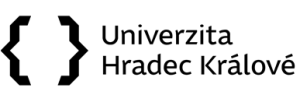
This class familiarizes students with how the spread of information technology (IT) and the internet has transformed politics on a global scale. It incorporates both theoretical and empirical approaches to the study of this transformation and requires students to learn how to perform qualitative coding of social media sources.
The first part surveys the different facets of the intersection of politics and technology and simultaneously illustrates the scholarly approaches used to tackle them. Over the course of six weeks, it characterizes this nexus through a changing focus towards: (1) the spread of new media, (2) electoral campaigns, (3) social movements, (4) political party organization, (5) political participation, and (6) authoritarianism.
Then the second part of the class uses a series of recent case studies from Europe, Latin America and Africa to show how these transformations have taken place. To do so, we will follow a series of politicians in their social media interventions while the class unfolds, applying a qualitative coding to their daily posts. While in the first part of the class the students will focus on the theoretical and historical aspects of the transformation, here the aim is to understand the politics of the internet as they are happening during this year (2022).
Finally, this class aims to provide insight that transcends local dynamics and can be applied to any context. Its ultimate goal is to endow students with tools that allow them to become full citizens of a political world that has largely moved online, something which would be dangerous to ignore.
- Teacher: Alberto Lioy
